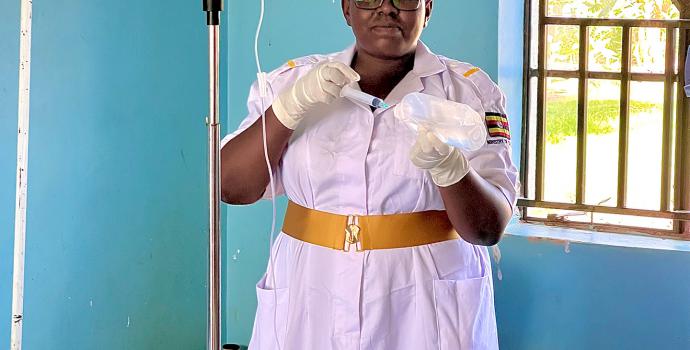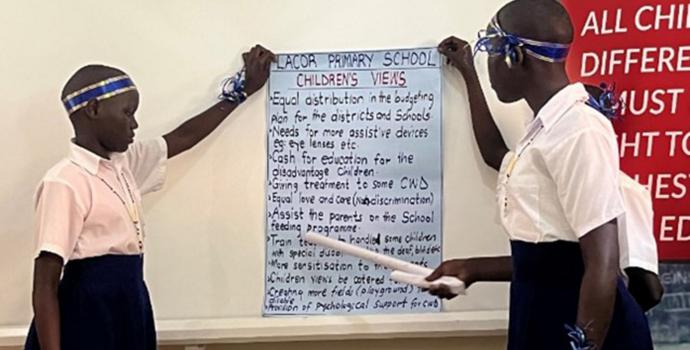Empowering Maternal Health Heroines through SWAP project

Peninah Namuddu is an exemplary midwife at Wakiso Health Centre IV, a vital facility known for handling critical maternal cases in the semi-urban area of Wakiso district. The center's high volume of admissions and diverse patient demographics, ranging from adolescents to older women, including first-time mothers has allowed Peninah to address a wide spectrum of maternal health needs.
Since completing her training in 2017, Peninah has navigated her career with a passion for maternal and neonatal health. Her previous role at a smaller Health Centre II that lacked maternity services meant she had not handled severe maternal conditions before. At Wakiso Health Centre IV, she then quickly realized that she needed to refresh her skills, particularly for managing severe conditions like pre-eclampsia, which she hadn't frequently encountered.
Fortunately, her transfer coincided with the rollout of the Save the Children's Saving Women And Preterm Babies (SWAP) Project at the facility. Through this initiative, Peninah received critical training in pre-eclampsia management and helping babies breathe. She was also paired with a project-assigned mentor who addressed gaps in her knowledge and skills, bolstering her confidence and expertise.
Peninah's most profound inspiration comes from handling severe maternal conditions and seeing mothers and their babies go home healthy and happy. She recounts a particularly memorable case when a mother arrived at the facility convulsing, suffering from eclampsia right after delivering twins, one of whom tragically did not survive.
“With the skills I had acquired, I recognized the emergency for what it was. I administered a crucial loading dose of magnesium sulfate (MgSO4), stabilizing the mother before the doctor's arrival,” Peninnah recalls. The quick response and immediate treatment ensured the mother's condition was managed effectively before she was referred to a higher-level facility for further care.
Later, the mother returned for a follow-up, walking and completely recovered, a testament to the effectiveness of the emergency care Peninah had provided. Peninah's experience highlights not just the challenges midwives face but also the triumphs that come with saving lives through skill and quick action.
“Thanks to the SWAP project, I can now confidently manage complicated cases of pre-eclampsia, ensuring that mothers receive the best possible care before, during, and after delivery,” Peninah says. Peninah's work not only exemplifies the impact of skilled midwifery care but also the environmental benefits of efficient and effective healthcare practices.

“In this area, climate change has manifested through more erratic weather patterns, including longer dry spells and unexpected heavy rains, which have occasionally impeded access to our health facility. Flooding can isolate communities, making it challenging for pregnant women to reach the facility in time for safe deliveries. This has necessitated more proactive community outreach and preparedness activities to ensure continuous care.” Peninah adds.
Peninnah notes that through continuous care, they have implemented regular prenatal screenings and education sessions for expecting mothers, which have significantly reduced complications related to pre-eclampsia. “Early detection and management have led to better maternal and neonatal outcomes,” she says
Training more midwives in neonatal resuscitation and continuous follow-up has led to a decrease in neonatal deaths due to birth asphyxia at Wakiso health facility. “This training ensures that each baby born in our care receives immediate and effective support, improving survival rates.” She says.
Peninah's commitment to maternal health, supported by comprehensive training and mentorship, is a testament to the power of knowledge and continuous learning in transforming healthcare and saving lives.
Through her dedication and the support of initiatives like SWAP, Peninah continues to contribute valuably to her community, embodying the resilience and skill that midwives bring to the forefront of healthcare, especially in critical times of need.




